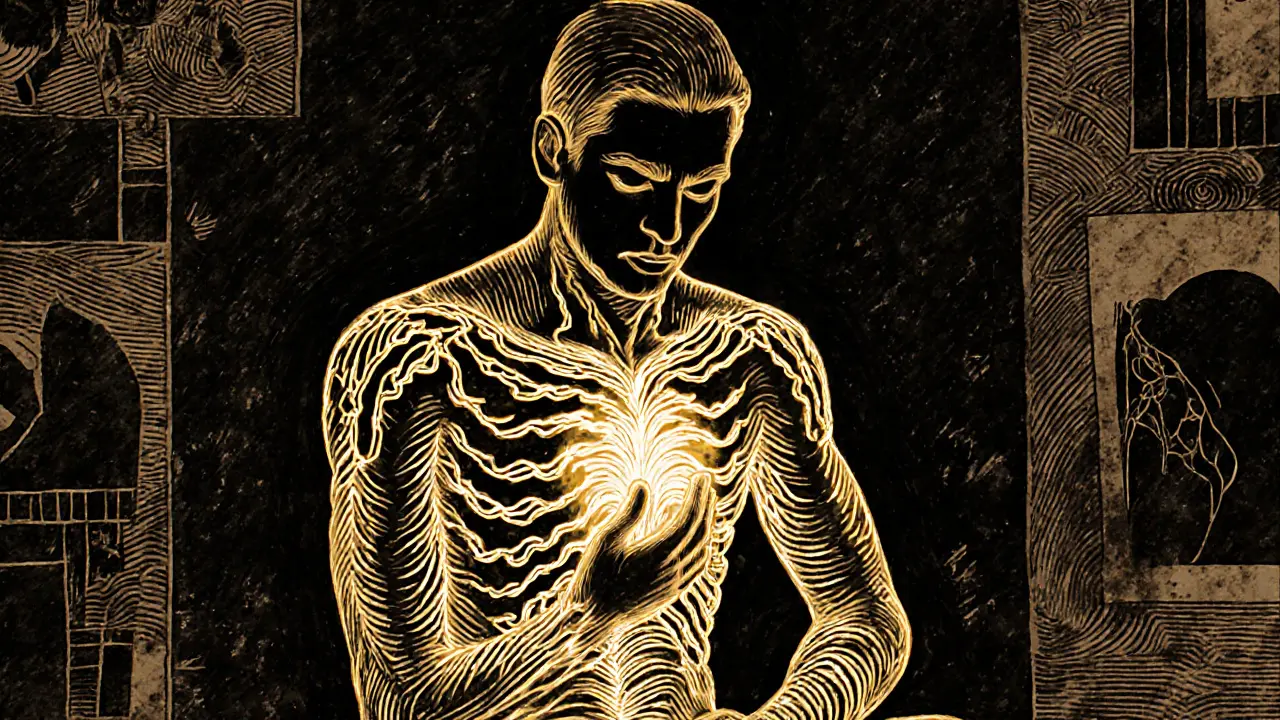Somatické příznaky traumatu: Jak tělo ukazuje, že něco není v pořádku
When you’ve been through something overwhelming, your body doesn’t forget — even if your mind tries to. somatické příznaky traumatu, fyzické reakce, které vznikají jako důsledek nezpracovaného psychického zážitku. Also known as tělesné projevy trauma, they include chronic pain, digestive issues, constant tension, or sudden panic attacks without obvious trigger. These aren’t just "stress" — they’re your nervous system screaming for help, long after the event is over. Many people think trauma is only about flashbacks or nightmares, but the truth is, your body remembers what your mind can’t or won’t say.
It’s not rare to feel a tight chest during a quiet evening, or to get dizzy when someone raises their voice — even if they’re not angry. These aren’t random glitches. They’re PTSD, porucha vznikající po extrémním stresu, která se projevuje i tělesně in disguise. Your muscles hold onto fear. Your gut reacts to memories you didn’t know you had. Your breathing changes when you’re safe, but your body still thinks it’s in danger. This is why some people feel exhausted all the time, even when they sleep enough. Or why they suddenly can’t stand being touched — not because they’re "overreacting," but because their nervous system is stuck in survival mode.
And it’s not just about big traumas. Repeated emotional neglect, constant criticism, or growing up in a household where you had to be "perfect" to be loved — these leave marks too. The tělesné reakce na stres, fyzické projevy, které tělo vyvíjí jako reakci na dlouhodobý psychický tlak look different for everyone: headaches, skin rashes, jaw clenching, trembling hands, or even numbness in limbs. They’re your body’s way of saying: "I’m still carrying this. I need you to see me."
Co s tím dělat, když tělo mluví, ale slova chybí?
Therapy doesn’t always start with talking. Sometimes it starts with breathing. Or shaking. Or feeling your feet on the floor. Methods like somatic experiencing, sensorimotor psychotherapy, or even dance movement therapy help you reconnect with your body safely. You don’t need to relive the past to heal it. You just need to learn how to listen to what your body is telling you now.
These aren’t abstract concepts. People here in the Czech Republic are finding relief — not through medication alone, but by learning how their tension, fatigue, or stomach pain connects to old wounds. One client came in with chronic back pain for five years. No doctor found a physical cause. In therapy, she realized the pain started the day her father yelled at her for the last time. Healing didn’t mean forgetting. It meant finally letting her body relax.
What you’ll find in the posts below are real stories, practical tools, and proven approaches — from how movement helps release trapped fear, to why sleep problems are often tied to trauma, to how therapy can help you feel safe in your own skin again. No jargon. No fluff. Just clear, human insights for when your body is screaming, but you’re not sure how to answer.
Somatické příznaky traumatu - bolesti, únavu, poruchy spánku - nejsou jen fyzické. Jsou tělem, které si pamatuje. Tělově orientované terapie jako Somatic Experiencing pomáhají uvolnit zachycenou energii a obnovit nervový systém. Zjistěte, jak to funguje v praxi.
Pokračovat ve čtení...
